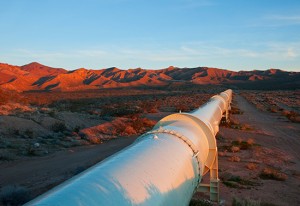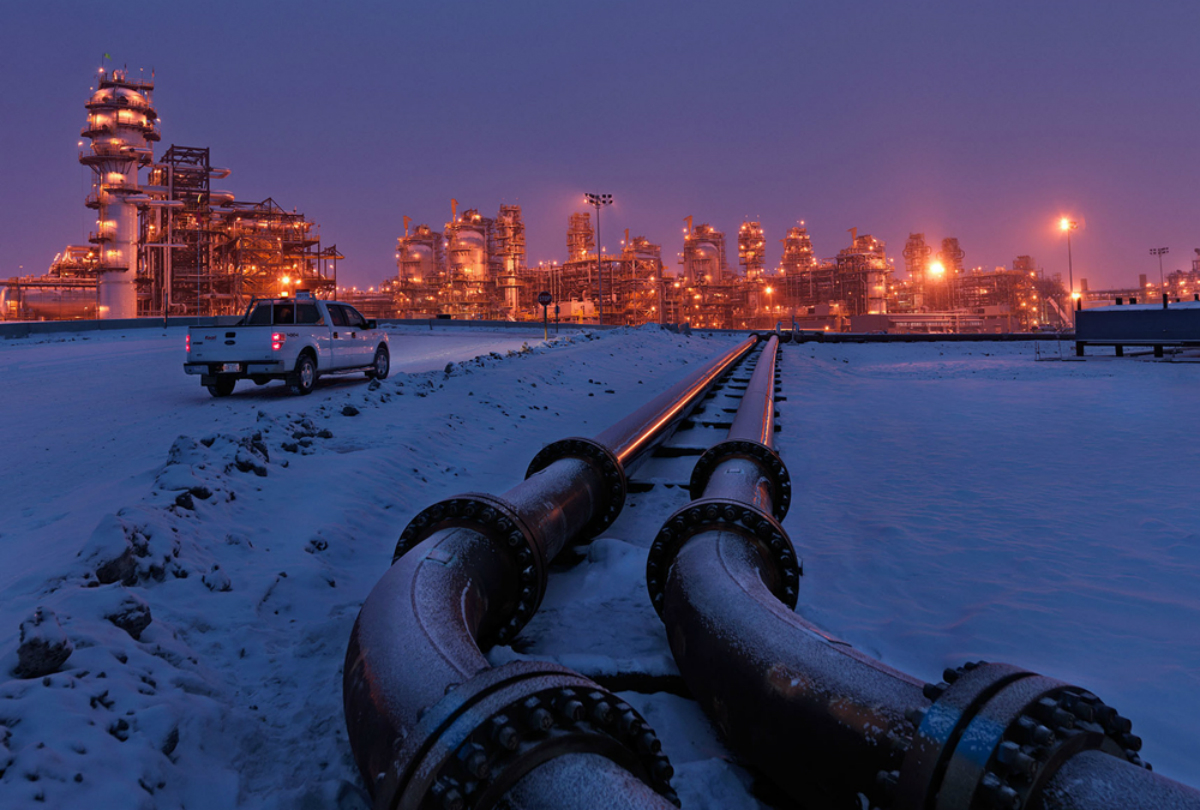Germany, or rather, the entire continent of Europe, faces an extreme gas shortage this winter if the Nord Stream 1 pipeline does not come back online soon. The controversial pipeline carries gas from Russia to Europe by way of Germany. It was shut down for annual maintenance on July 11. Meanwhile, European underground storage sites are only about 64% full. Experts say this number must reach 80% or more by November 1 if Europe is to face the coming winter successfully.
Get all the latest market news on gas, metals, and other global commodities. Sign up for the FREE weekly MetalMiner newsletter here.

Many Experts Wonder if the Maintenance Period is Legitimate
To say there is significant apprehension in the air would be a gross understatement. In fact, many worry that the Nord Stream 1 may shut off gas export completely after maintenance ends on July 21, 2022. Projections say this would see Europe running out of gas right at the peak of the heating season.
Indeed, even before the current phase of maintenance began, Russia had cut Nord Stream’s capacity to 40%. According to Reuters, Russia blamed the delay on a late supply of critical equipment from Canada. However, some in the energy business – including the German and Italian Governments – worry that this is merely a cover for Moscow to supply less gas to Europe. In the wake of the Ukrainian invasion and severe sanctions, is it possible that this “maintenance period” may simply never end?
Fears of such an event were not quelled when Russia’s state-owned multi-energy corporation PJSC Gazprom reached out to its European clients a few days ago. According to the same Reuters report, the company, which holds a majority 51% stake in the pipeline, said it could no longer guarantee gas supplies because of ‘extraordinary’ circumstances.
MetalMiner Insights now offers forecast and predictive analytics for the full range of metals, stay posted!
Germany Seems to be Preparing for the Worst
Russia has already cut gas supplies to Bulgaria, Finland, Poland, Denmark, and several other nations. At the time, this was because they all refused to switch their payments to the rouble. Meanwhile, other parallel pipelines from Russia to Europe have also seen a reduction in gas flow over the past few months. Of course, due to Russia’s invasion of Ukraine, flows through pipelines running through that region have also been curtailed.
So far, Gazprom’s claims that a crucial turbine from Canada is causing the delay are widely disputed. While Gazprom said the turbine was scheduled to arrive around July 24th, the German government said it wasn’t supposed to be installed until September. Regardless of the real reason for the shutdown, German is already making moves to circumvent the problem.
Indeed, Klaus Müller, President of Germany’s Federal Network Energy, recently informed a local publication known as Bild am Sonntag as to what might happen. He stated that even if Russia stopped supplying Germany with natural gas altogether, countries like Norway, the Netherlands, and Belgium could help make up for the shortfall. However, he added that Germany’s gas shortage could still last over two winters, even in the best-case scenario.
Get all the latest information on global commodities and metals. Sign up for the FREE weekly MetalMiner newsletter here.
Only Time Will Tell if the Gas Shortage Will Happen
Meanwhile, German energy company Uniper recently revealed it had received a letter from Gazprom Export in which the company retroactively claimed “force majeure” for past & current shortfalls in gas deliveries. Uniper rejected the claim, having been the first German company to hit the alarm bells over rising energy bills. Still, the company has received only 40% of Russian contracted volumes in recent weeks. In fact, it was forced to buy gas from other sources, leading to a significant rise in prices.
No matter the circumstances, Gazprom still holds 51% stake in the pipeline. This gives them majority control and, for the time being, the benefit of the doubt for its claims. The rest of the shares belong to four Western partners, including companies from France and the Netherlands. The Swiss-based Nord Stream AG consortium is the operating company for all transit, technical & legal issues. However, it does not own the asset or any of the gas it provides.
Keep yourself informed of important commodities news with MetalMiner’s monthly MMI Report. Sign up here to begin receiving it completely FREE of charge. If you want a serious competitive edge in the metals industry, try a demo/tour of our revolutionary insights platform here.




